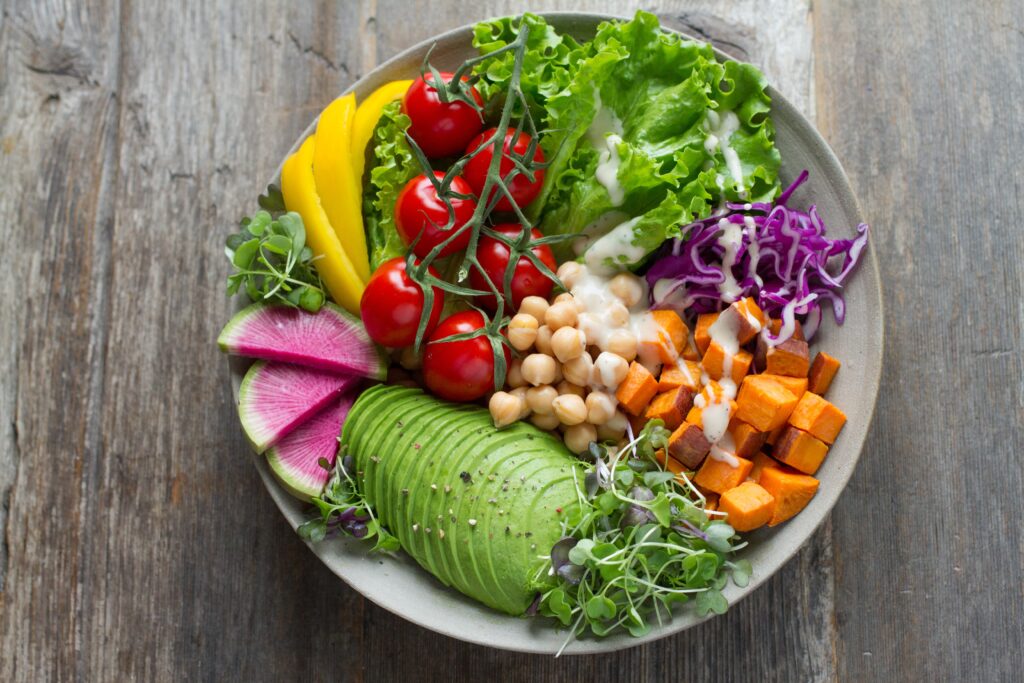
In today’s fast-paced world, it’s easy to fall into the trap of prioritising convenience over nutrition, especially when you’re on a budget. But the truth is, with the right knowledge and strategies, it’s entirely possible to eat well without breaking the bank. In this article, we’ll explore valuable tips and principles that will help you make informed choices about your food, all while sticking to your budget.
- Whole Foods for Nutrient Retention: Focus on whole foods like fresh fruits and vegetables, whole grains, legumes, nuts, seeds, fresh meats, and eggs. These foods retain their natural nutrients and are cost-effective.
- Prioritise Local and In-Season Produce: Local farmers’ markets and homegrown herbs and veggies can be affordable, and they ensure freshness and nutrient density.
- Affordable, Nutrient-Dense Foods: Incorporate lentils, beans, eggs, canned tuna, oats, frozen vegetables, and brown rice into your regular diet. These items are not only cost-effective but also packed with essential nutrients.
- Minimise Food Waste: Embrace batch cooking, proper food storage, creative leftover usage, and freezing extra portions to save money and reduce waste.
- Affordable Superfood Alternatives: Skip expensive superfoods and opt for affordable alternatives like yoghurt, nuts, seeds, legumes, garlic, berries, and leafy greens like spinach.
- Balanced Nutrient Intake: Diversify your diet with a variety of fruits and vegetables, whole grains, and protein sources such as poultry, eggs, and fish. Plan your meals for the week and stick to your shopping list.
- Buy in Bulk and on Sale: Take advantage of sales, buy in bulk, and stock up on sale items with a focus on nutritious choices. Be cautious not to compromise on quality for price.
- Reading Food Labels: Understand food labels to make budget-friendly but healthy choices by comparing prices per unit, avoiding hidden sugars, recognising serving sizes, identifying fillers, and checking expiration dates.
- Affordable Meal Prep and Cooking Techniques: Utilise batch cooking and slow cookers to save time and money. Prepare versatile dishes that can be transformed throughout the week.
- Incorporate More Fruits and Vegetables: Opt for frozen fruits and veggies, and consider buying “ugly” produce at a discount. Use whole fruits and veggies to maximise nutrients and minimise free sugars.
- Organic vs. Conventional Produce: Prioritise organic options for the “Dirty Dozen” – strawberries, spinach, kale, peaches, pears, nectarines, apples, grapes, bell peppers, cherries, blueberries, green beans (most contaminated), and choose conventional produce from the “Clean Fifteen” (least contaminated) to balance health and budget considerations.
- Healthy Snack Options: Homemade hummus with veggies, roasted chickpeas, fruit, eggs, veggies, and tuna with veggies are budget-friendly, healthy snacks.
- Accommodating Dietary Restrictions: Focus on versatile ingredients like lentils and chickpeas, and cook simple base dishes that can be customised to accommodate family members’ preferences and restrictions.
- Portion Control: Use smaller plates, listen to your body’s hunger cues, and ensure a significant portion of each meal is vegetables to stretch your food budget.
- Reduce Sugary and Processed Foods: Cook at home more often, and when buying packaged foods, choose options with less sugar and fewer additives.
- Special Occasions and Holidays: Opt for potluck-style gatherings where attendees bring nutritious dishes. Simple dishes that highlight a few ingredients can be both budget-friendly and impressive.
- Community Resources and Programs: Explore government initiatives, local farmers’ markets, organisations like Friends of the Earth Malta and Thrive, as well as local charities and community centres offering programs and workshops focused on budget-friendly nutrition.
Eating well on a budget doesn’t have to be an impossible task. By following these principles and tips, you can make nutritious choices that are not only good for your health but also friendly to your wallet.
Remember, small changes can lead to significant improvements in your overall well-being and financial savings.
The information in this article was given by Corinne Zaffarese Elbourne, a state registered nutritionist, a pharmacist and a fitness instructor with a comprehensive understanding and the knowledge to bring about positive changes in lives.





